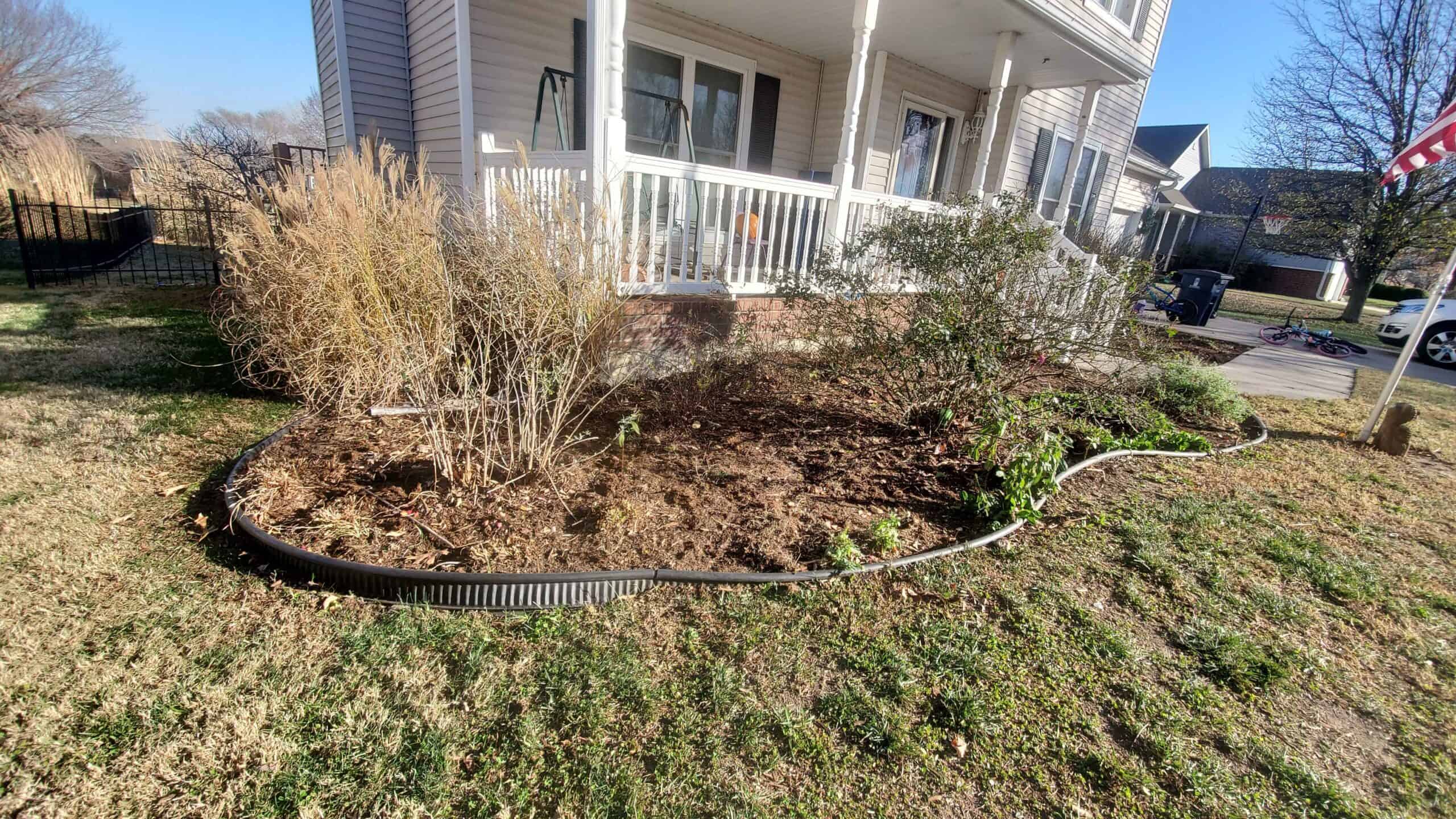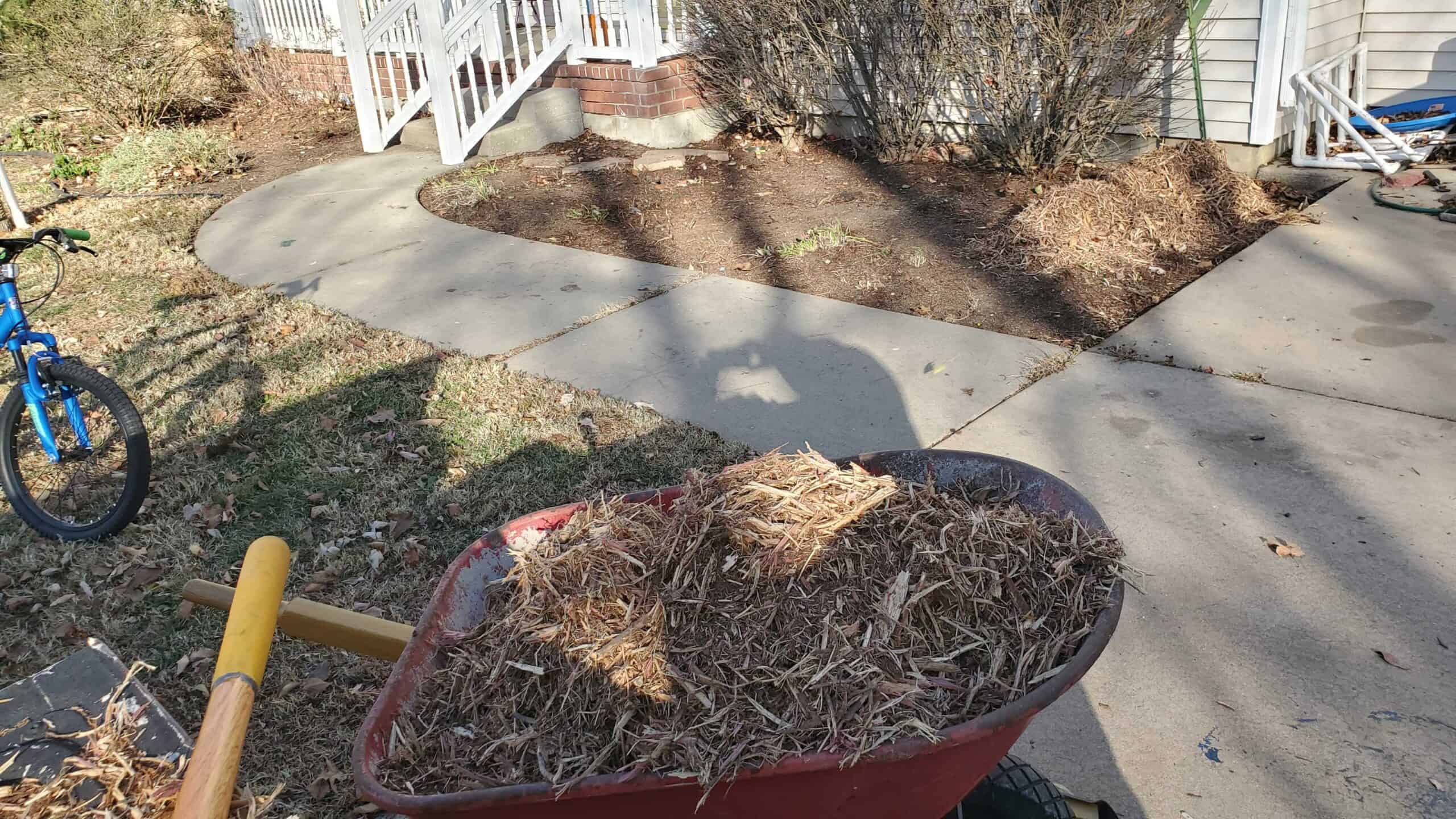The Green Carpet: Unveiling the Numerous Benefits of Mulching for Kansas Lawn Maintenance
Maintaining a lush and vibrant lawn can be challenging in the heartland of America, where the vast expanse of prairies meets the cultivated landscapes of suburban homes. With its diverse climate and soil conditions, Kansas demands a strategic approach to lawn care. One often overlooked but highly effective practice is mulching. It is a secret weapon for achieving and sustaining a healthy, thriving lawn in the Sunflower State. Let’s discuss it in more detail.
What Is Mulch?
Mulch is a layer of material applied to the surface of soil to enhance its fertility, structure, and overall health. Comprising various organic or inorganic substances, it forms a protective cover that offers numerous benefits to gardens and landscapes. Organic mulches, such as shredded bark, wood chips, straw, or compost, decompose, enriching the soil with essential nutrients. This decomposition process also enhances soil structure by promoting the activity of beneficial microorganisms. Mulch is also a natural insulator, regulating soil temperature by preventing extreme fluctuations. In hot weather, it helps to retain moisture, reducing the need for frequent watering. In colder temperatures, it provides insulation against frost. Additionally, mulching lawns helps suppress weed growth by blocking sunlight and inhibiting weed germination. This conserves soil moisture and minimizes competition for nutrients between weeds and desirable plants. It’s exceptionally effective when paired with aeration and overseeding. Furthermore, mulch protects the soil from erosion caused by wind and rain, preventing valuable topsoil loss. Its ability to create a barrier between the soil and the impact of heavy raindrops helps to maintain soil structure and prevent compaction. Discuss other capabilities with a mulch expert in KS.
Benefits of Mulching in Kansas
Let’s zoom in on the multiple benefits of installing mulch as part of your lawn maintenance strategy:Water Conservation
Kansas is no stranger to erratic weather patterns, and the fluctuating rainfall can pose a significant challenge for maintaining an optimal water balance in lawns. Mulching is a natural water regulator. It reduces evaporation, minimizing water runoff and maximizing irrigation. Mulch helps retain moisture by forming a protective barrier over the soil, ensuring your lawn receives a consistent water supply even during dry spells. This quality conserves water and promotes deeper root growth, making your lawn more resilient to drought conditions.Soil Enrichment
The soil composition in Kansas varies widely, from clayey to sandy and sometimes a combination of both. Mulching plays a pivotal role in improving soil structure and fertility. Organic mulches, such as shredded leaves or bark, gradually break down over time, enriching the soil with essential nutrients. This natural decomposition process enhances microbial activity, fostering a healthier soil ecosystem. Improved soil structure facilitates better water infiltration and root penetration, creating an ideal environment for robust grass growth.Weed Suppression
Kansas lawns often contend with invasive weeds that can quickly take over if left unchecked. Mulch is a natural weed suppressant that creates a physical barrier inhibiting germination and growth. This is particularly beneficial in Kansas, where weeds can thrive in the fertile soil.Temperature Regulation
Kansas experiences a wide range of temperatures throughout the year, from scorching summers to frigid winters. Mulch acts as a thermal insulator, regulating soil temperature and protecting the roots of your grass from extreme weather conditions. In the summer, it shields the soil from the sun's intense rays, preventing overheating, while in the winter, it provides insulation against freezing temperatures. This temperature moderation ensures that your lawn remains healthy and vibrant year-round.
 (316) 435-3509
(316) 435-3509 office@divine-lawns.com
office@divine-lawns.com